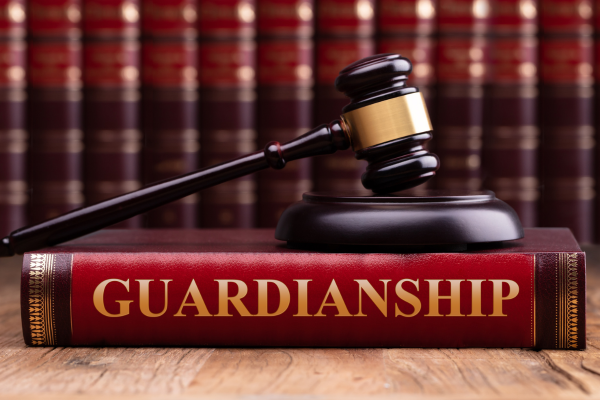Elder law attorneys may specialize in estate planning, incapacity planning, and end-of-life care for seniors.…

Guardianships for Minors | 8 Things to Consider
Whether or not you have an estate plan in place, if you have underage children, you must take action to plan for their care in the unfortunate event you are no longer able to. This means considering guardianships for minors. In other words, naming a guardian for their care. Simply providing for your children financially is not enough without having the proper person in place to look after their needs. Any child under the age of 18 requires a guardian and it is vital that you give thought to, and carefully plan for who that person or persons will be.
Although a court must ultimately approve of the guardian you elect, they give great deference to your wishes. If you fail to name a guardian, however, the court will choose one for you. When making its decision, courts will choose someone who they believe would serve in the best interest of the children. The problem is, it may not be a person you would have chosen or would have necessarily wanted to raise your children. Courts will not always take into account the same factors you may find as important when selecting a guardian. Below is a list of 8 important things to consider when planning for guardianships for minors.
How many children do you have and how many are minors that would require care?
When planning for guardianships for minors consider if the person you are thinking of will be able to care for or take in all of your children. Does the person have other children/minor children they care for, if so how many? Do you have similar parenting styles?
You must consider the person you are considering’s circumstances and whether he or she will be able to accommodate your wishes. Would you want your children to be split up because the person you have chosen can only take in one child? Do you know this person’s parenting style and does it line up with yours? You must think that this person will be stepping into your shoes, thus it is important this person shares similar ideals and methods in parenting.
Consider someone who already has a relationship with your child.
While you may have someone whom you would trust unconditionally because of a lifelong relationship, you must also think about your children and what their relationship is with this person. When planning guardianships for minors, if there is no pre-existing relationship between the child and guardian, it may be even harder for your children to acclimate to a new living situation.
Is the person financially responsible or financially capable?
There may be someone who is the perfect fit to serve as a guardian. They may have an existing relationship with your children and may be a great parent with similar morals and values, but it is another thing entirely to be able to afford to add more people to a household. You want to make sure your children have a great quality of life and you do not want to put a strain on their upbringing, nor the person or people you have selected as their guardian. You want someone who is financially stable that will be able to provide for your children adequately.
Does the person live near you where it would not disrupt your child’s connection to friends and community?
When planning guardianships for minors consider if where they live causes your child to have to change schools? If so, is it a school district you would want your child to attend?
Uprooting a child from his or her home is hard enough without any added factors. However, if you completely upend their lives and take them away from everything and everyone they know, it could be devastating.
Do you have particular beliefs or faith that you want your child to be raised by? Does this person share those same beliefs?
Beliefs and faith are important to many people. Naturally, however, not everyone shares the same beliefs and principles. If this is something that is important to you, you will want to consider someone with the same belief system to ensure your children grow up in an environment surrounded by those customs.
What is the person’s age and what stage of life are they in?
People tend to look to their parents or siblings and often overlook their age and where they are in life. If your sibling is young and dedicated to his or her career, will your sibling have the time to devote to your children? If your parents are older, near retirement, or suffer from health issues, are they going to be able to look after your children long-term? What if something were to happen to them in the near future and that requires them to be in need of care?
What if something were to happen to the person you elected as a guardian and that person is unable to fulfill that role? Do you have a back up?
It may be hard enough to think of even one person you would want to care for your children, but you must be prepared in the event something were to happen to that person where they are either unable to serve, or no longer around to serve as guardian. Just as with all plans, there should always be a backup in place.
Naming who you do NOT want to raise your children.
While it is important to name who you do want as a guardian, it is just as important to name whom you would not want to serve as guardian. If you have immediate family members you are estranged from, or simply just do not believe would be the right fit to raise your children, it should be made known. Courts will always look to close family first when evaluating guardianships and if your intent is not made clear, there is a possibility a court may choose someone you would not want as guardian in the absence of your direction.
As clearly stated, there is a great deal to consider when planning for the care of your children. Children are the most important legacy someone could leave behind. Thus, it is vital to sit down and thoughtfully plan whom you would want as a guardian if ever you were unable able to care for your children. Many people think, “Well if something were to happen to me, my spouse would take care of our children.” However, many people also fail to consider the scenario where something could happen to both parents simultaneously. Then what?
Our firm appreciates the importance and magnitude of this sort of decision. We also understand the decision is much harder to make when you do not have the proper guidance. We are here to provide you with that guidance and help you sort through all your legal options when planning for guardianships for minors. More importantly, we are here to help you navigate through all of the important considerations that stand behind making the right decision for you and your family.




This Post Has 0 Comments